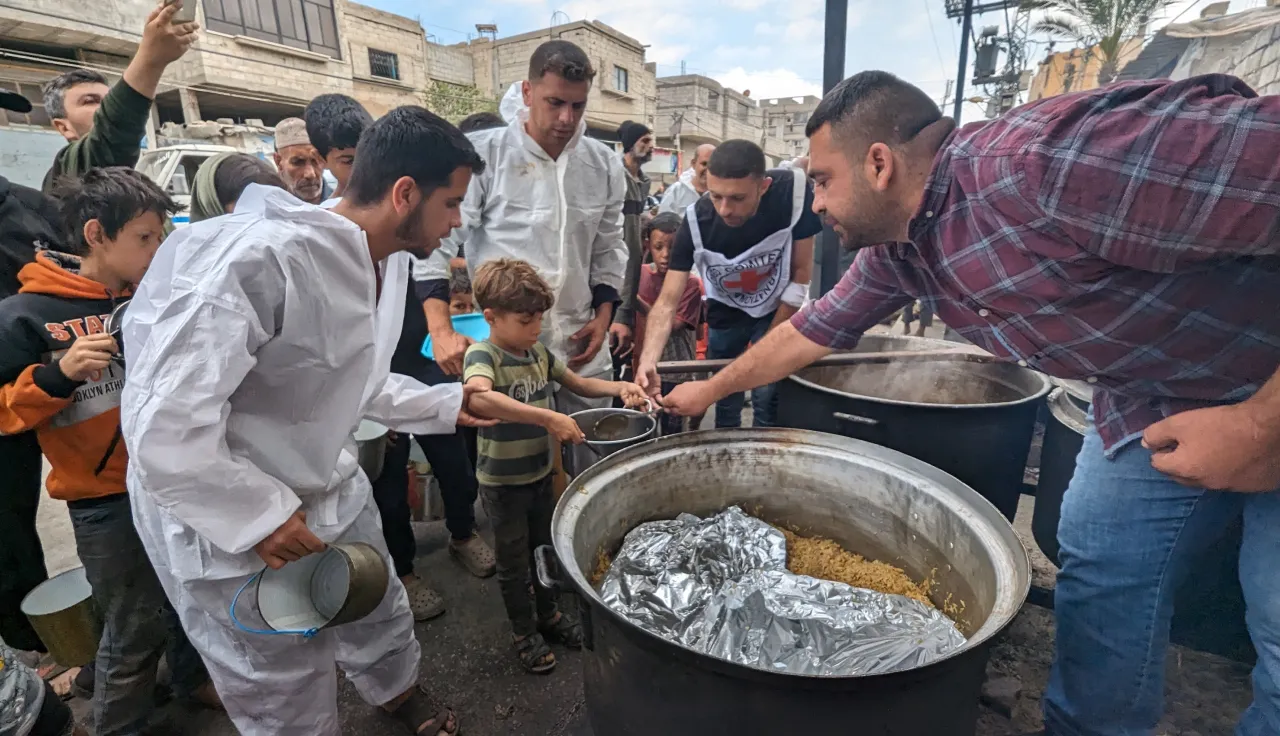Special Appeal 2025 - From relief to resilience: strengthening food security in conflict

Millions of people all over the world face the daily challenge of securing enough food, a crisis that demands urgent action and support. Armed conflict and insecurity are the primary drivers of this crisis, with displaced families barely surviving on just one meal a day and farmers struggling to feed their households amid violence.
Climate change worsens the situation by damaging crops, displacing communities, and destabilizing food systems. Meanwhile, global food markets remain volatile, with trade disruptions, currency depreciation, and rising import costs making food unaffordable for the most vulnerable.
Armed conflict impacts all dimensions of food security
Livelihoods vanish when crops are destroyed, farming fields are mined or when families are forced to flee. When roads and bridges are bombed, access to markets is cut and essential supplies become scarce or inaccessible, plunging people into hardship. Often, health services collapse, making it difficult for children to recover from malnutrition. Insecurity can prevent aid organizations from bringing relief to those most in need. And when guns fall silent, rebuilding lives seems like an insurmountable challenge.
What sets us apart: ICRC’s experienced and holistic approach
The ICRC uniquely placed to work in warzones, bringing protection and assistance to people affected by conflict and other violence. When it comes to tackling food insecurity, our multidisciplinary and holistic approach aims to address both individual needs and systemic issues, in the short, medium and long term. Our teams stay close to the affected communities, and focus on the people living in the most hard-to-reach locations. Our reach is amplified by working closely with the large network of National Societies present on the ground.
How we do it: a comprehensive response to food insecurity
We contribute to the prevention of acute food insecurity, and effective response when such crises nevertheless occur, by promoting improved respect for rules of international humanitarian law (IHL). The way a conflict is fought can both directly and indirectly impact food security: parties to the fighting have the primary responsibility to ensure the basic needs of civilians in areas under their control are met. ICRC engages with the groups that can determine the fate of people affected by armed conflict to influence their attitude and behaviour, to improve the protection of civilians, facilitate access to the communities in need and improve security for humanitarian action. We do so by promoting IHL and carrying out protection work.

We respond to emergency food, nutrition and other essential public-health needs of conflict-affected populations in the hardest-to-reach areas. The ICRC’s presence where it is needed most is ensured through operational collaboration with the vast network of national Red Cross/Red Crescent Societies across the world. To help the most vulnerable cope with recurrent food security crises, the ICRC provides food, cash, and carries out a wide range of interventions to prevent or treat malnutrition.

We build sustainable solutions for food and economic security in conflict-affected countries to strengthen resilience at household, community and systems level. The ICRC implements a wide variety of climate-smart agricultural programs, as well as livestock, fishing and other livelihoods support activities to help people produce food and restore their income. To ensure the sustainability of these efforts, a systemic lens is used to complement household-level support through concurrent investment in capacity-building of local institutions to improve service provision, rehabilitation of infrastructure critical for irrigation or the improved functioning of agro-value chains, and empowering communities to better access local markets.

In 2025, the ICRC aims to support
- more than 2.2 million people obtain adequate food
- nearly 6 million people produce food more sustainably
- over 32 million people with improved access to essential water, energy and/or sanitation infrastructure




